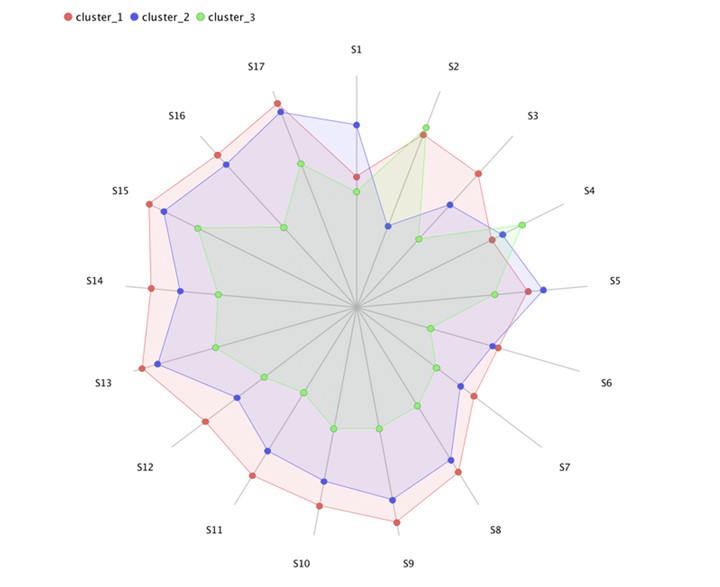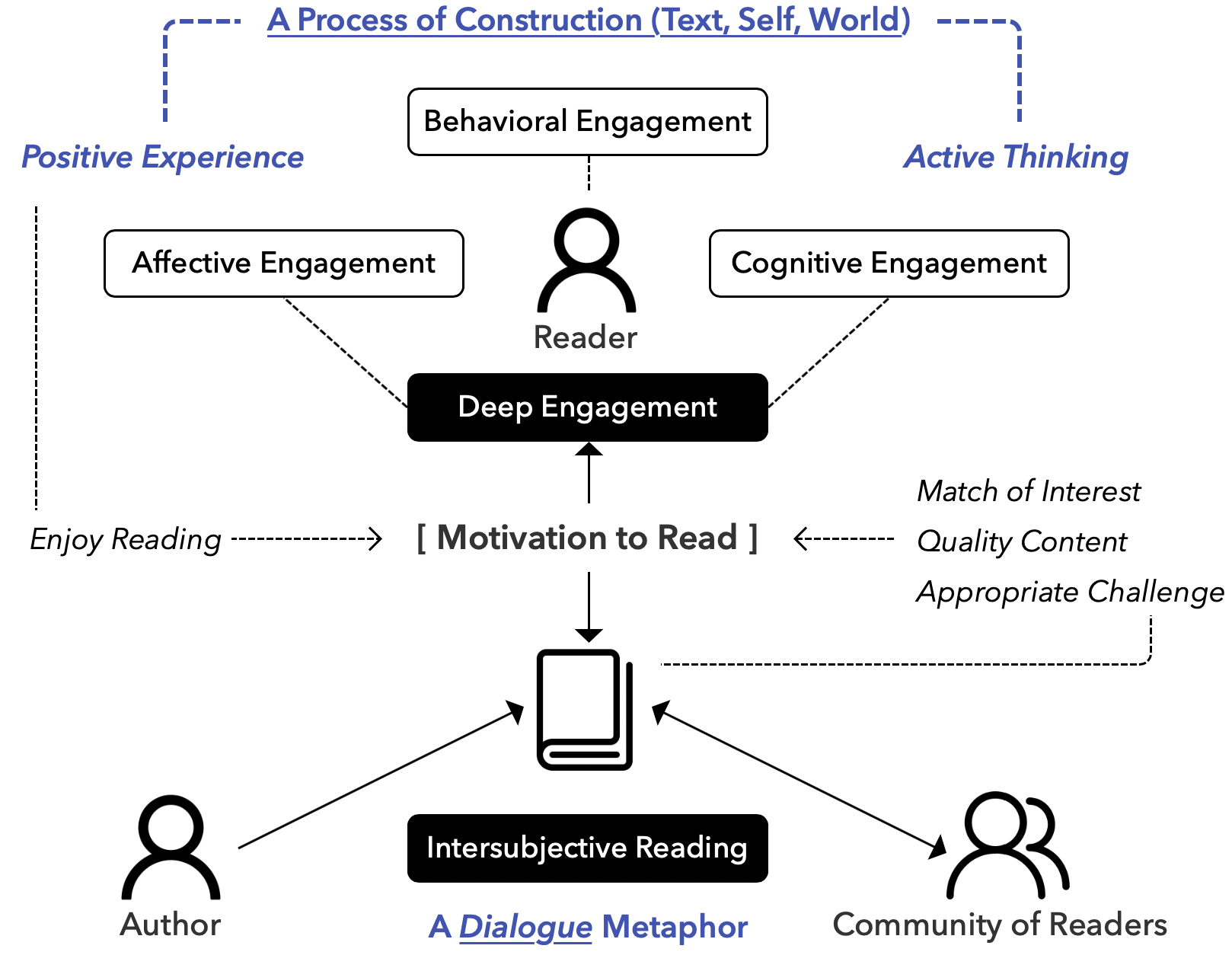Deep Reading in the Omnimedia Era
 Clustering of expert responses
Clustering of expert responsesThe advent of digital reading has aroused several pedagogical concerns, including whether fragmented reading and distractive media in digital environments hinder adolescents' involvement in deep reading. We approach this question through reconsidering the theory and conceptualization of deep reading, with a specific focus on its implications for encouraging deep reading in today’s media-rich environments.
In this project, we identified varying perspectives on deep reading through a systematic literature review, compiled an expert survey on points of contention in the literature, and performed K-Means clustering on the survey responses. The study revealed three opinion clusters, with varying beliefs on (i) the nature of deep reading and (ii) whether deep reading depends on the reading media (i.e., printed versus digital).
Highlights:
- Discussed (i) varying perspectives on the conceptualization of deep reading based on a systematic literature review and K-Means clustering of expert survey responses and
- (ii) the mechanisms underlying deep reading in terms of (a) the cognitive-affective process inside the reading brain and (b) reading as a social process; [Research Output]
